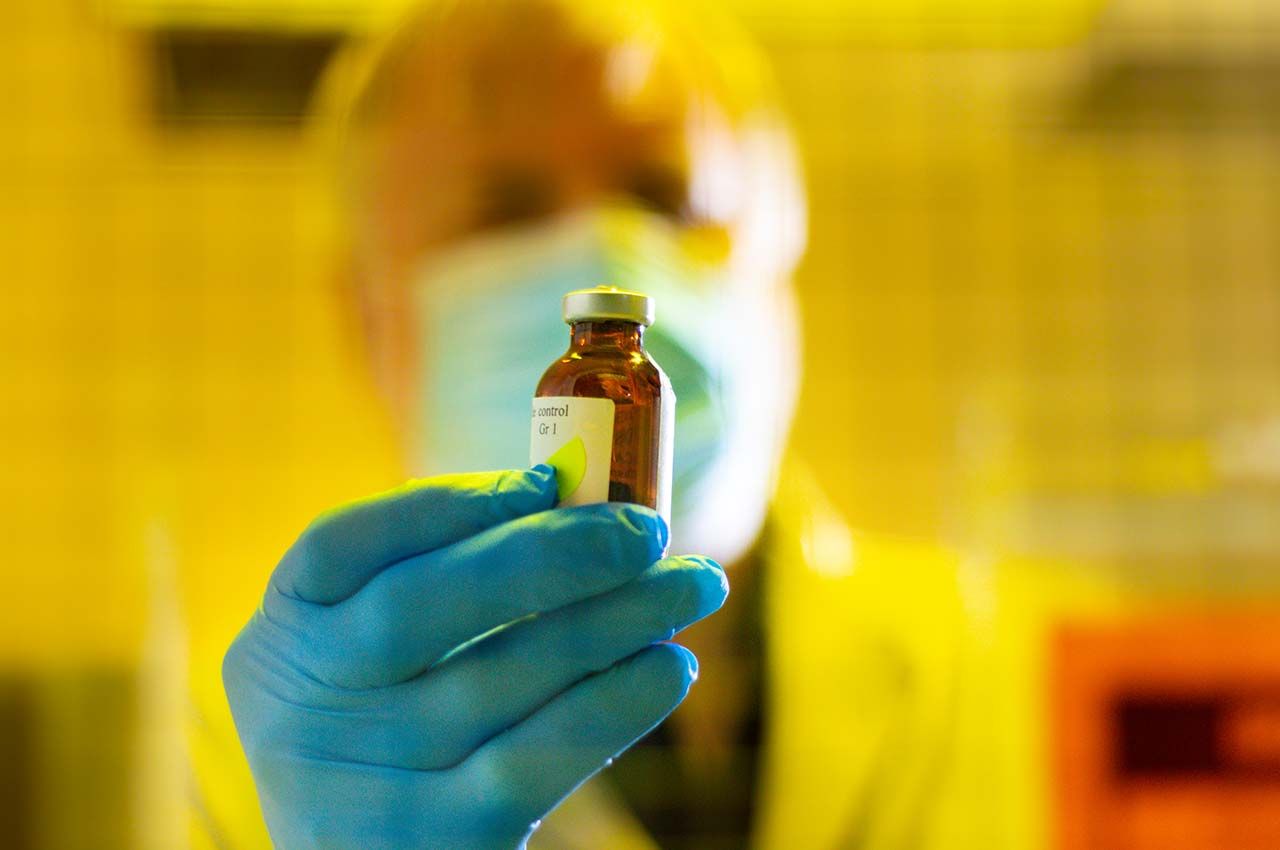IITRI Helps Develop COVID-19 Therapy Scheduled to Advance to Clinical Trial

Since fall 2020 IIT Research Institute (IITRI) has performed preclinical efficacy and safety studies of several dozen novel agents designed to prevent or treat COVID-19—among them, an inhaled recombinant human protein to prevent COVID-19 infection. The inhaled therapy is now scheduled to advance to a clinical trial led by the National Institutes of Health this August in Germany.
David McCormick, a professor of biology at Illinois Institute of Technology and president and director of IITRI, is leading the project. In September 2020 McCormick received $597,893 from the National Cancer Institute to perform a research project titled “Inhalation Studies of Recombinant Human Angiotensin Converting Enzyme 2.”
“Angiotensin-converting enzyme 2 (ACE2) is the receptor molecule to which SARS-CoV-2, the coronavirus responsible for COVID-19, binds in human cells,” McCormick says. “The idea is that administration of this molecule by inhalation will provide non-cellular targets in the respiratory tract to which the virus will bind, thereby reducing virus binding to ACE2 on the surface of lung cells. Reduced binding of the virus to the cell will reduce viral infectivity and disease severity.”
McCormick and his team conducted two safety assessments of inhaled ACE2 in fall 2020. Endpoint evaluations in both studies have been completed, and final study reports were submitted in March to NCI.
“Successful completion of these studies has generated critical data demonstrating the safety of inhaled recombinant human ACE2, and is expected to support [United States Food and Drug Administration] approval of the initiation of clinical trials with this agent,” McCormick says. “Development of safe and effective small molecule therapeutics for COVID-19 will greatly augment the progress in disease control that is being achieved by vaccines, and will be essential to combating the disease in individuals who cannot or will not be vaccinated.”
A wide range of government and commercial entities are supporting the many other COVID-19 research projects underway at IITRI.
“In addition to the NCI program, IITRI has been awarded more than $8 million since October 1, 2020, to evaluate the efficacy of biotherapeutics and small-molecule therapeutics for COVID-19, and to perform preclinical toxicology and pharmacology studies on agents that demonstrate significant activity,” McCormick says.
Funding for one large program has come jointly from the U.S. Department of Defense and the Biomedical Advanced Research and Development Authority, an office of the U.S. Department of Health and Human Services. IITRI has also received funding from nearly 30 biotechnology and small pharma companies to support efficacy studies of other novel COVID-19 therapeutics.
“These studies are being performed to meet a critical and immediate medical need,” McCormick says. “Although the rollout of COVID-19 vaccines has begun, many millions of people have not been vaccinated and remain at risk of the disease. Development of safe and effective agents to prevent and/or treat COVID-19 has the potential to save thousands of lives.”
Funding for the inhalation study reported in this article was supported by National Cancer Institute contract 75N91019D00013 (Task Order 75N91020F00002). The content is solely the responsibility of the authors and does not necessarily represent the official views of the NCI.
Photo: Professor of Biology and President and Director of IIT Research Institute David McCormick holds a bottle in the lab




